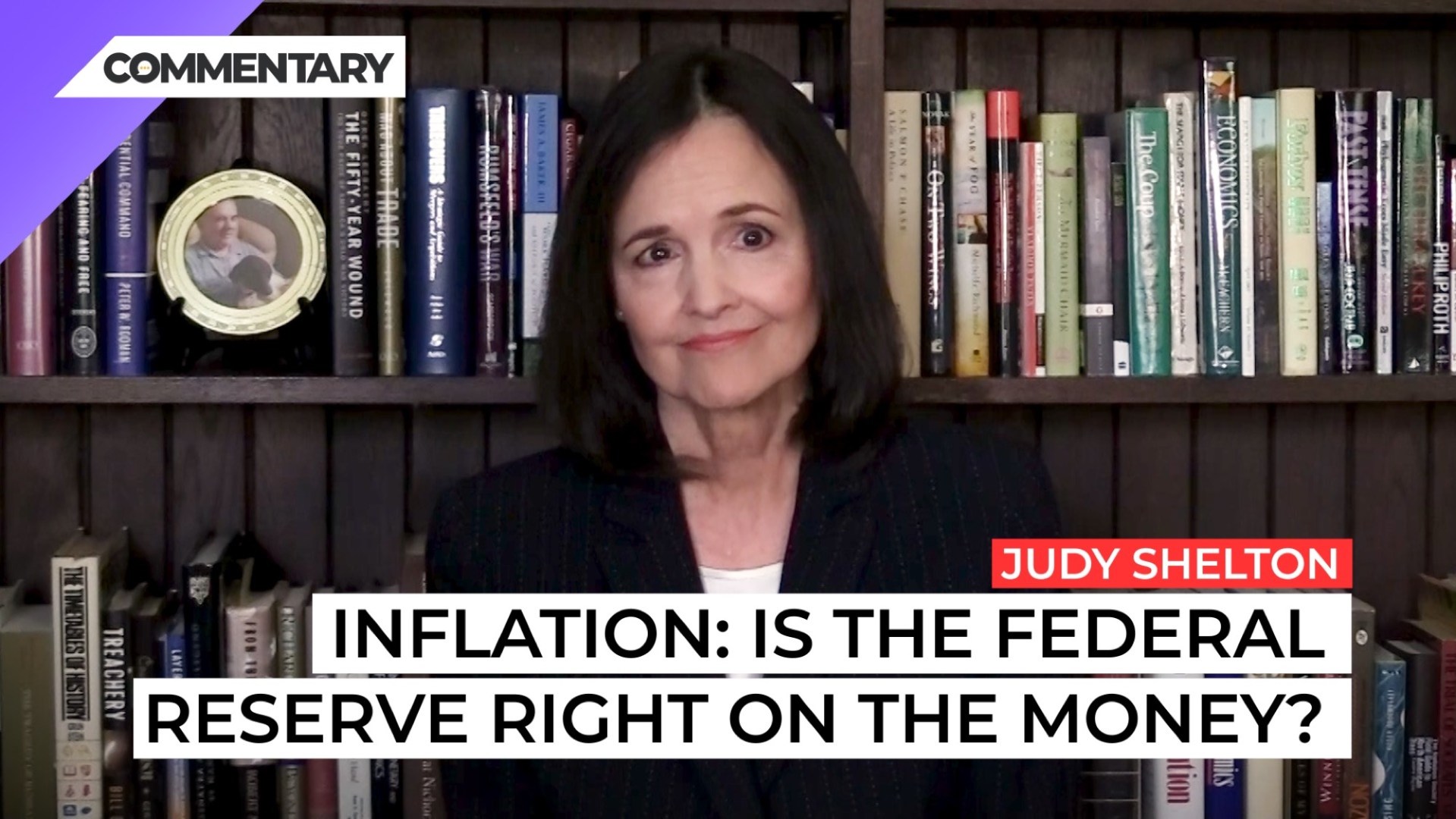
Commentary
-
Our commentary partners will help you reach your own conclusions on complex topics.
These days, we’re hearing a lot about inflation. Do groceries seem more expensive? How about gas? Or furniture? Or rent?
The Federal Reserve has taken the position that the higher prices we’re seeing will prove to be a temporary problem.
Fed Chairman Jerome Powell describes the inflation as “transitory.” Which gives us a good reason to think about the meaning of “price stability”. And to pose the question:
Is the Federal Reserve right on the money? Who is responsible for inflation? Whose fault is it?
A lot of people blame Congress for spending too much. Our government’s expenditures are certainly higher than its revenues so the Treasury has to issue debt to cover all that deficit spending.
But the Federal Reserve purchases huge amounts of that debt. So are they “enabling” the inflation?
It turns out, the government agency officially charged with ensuring “stable prices” is the Federal Reserve. It’s their “dual mandate” to achieve stable prices and full employment.
Now you might think the definition of stable prices means no inflation. The Fed’s definition is different:
Monetary policy is aimed at achieving 2 percent inflation on average over time. With a 2 percent annual inflation rate, the price level, in 10 years, rises by 22 percent. In 20 years, it rises by 49 percent.
You might be wondering, why do Americans accept a definition of “price stability” that amounts to deliberate reduction of the purchasing power of our nation’s monetary unit of account? It’s a valid question. After all, for anyone inclined to save the dollars they’ve earned for future use, monetary policy that is purposely aimed at diminishing the dollar as a store of value by reducing its future purchasing power amounts to an expropriation of wealth by a government agency.
It might surprise you to learn that a debate on this matter did take place in the boardroom of the Federal Reserve some 25 years ago.
Alan Greenspan was chairman of the Fed. Janet Yellen, who is currently Treasury Secretary, was a Fed governor.
The transcript of that monetary policy meeting held in July 1996 at the Fed’s headquarters in Washington, DC, makes for remarkable reading—especially given today’s concern about inflation.
The crux of the debate came down to this: People don’t like to have their wages cut, even when a company is not doing well, say, during a recession. Inflation can provide the cover for achieving real wage cuts without imposing the psychological blow of reducing nominal pay; that is, if inflation were 2 percent, a firm could increase the nominal amount it pays workers by 1 percent to achieve a real wage cut of 1 percent. If you had zero inflation, the firm would have to cut nominal pay by 1 percent to achieve the same real wage cut.
We’re talking human psychology here, as Janet Yellen pointed out. She favored 2 percent inflation as a target, versus zero inflation, based on theories going back to John Maynard Keynes and the idea of money illusion—which is that, while an economist would understand that a nominal increase in pay is actually a pay cut if prices are going up even more the average worker would not.
I think that’s wrong. People are smart, they do understand. Yes, the Fed is responsible for stable prices, they should seek 2 percent inflation; they should not deliberately reduce the purchasing power of the dollar. Inflation undermines productive economic growth, the kind that benefits everyone.
-
Inflation robs us of more than wage gains
Rising prices make it hard to get by when you live on a fixed budget. Even if you manage to raise your wages, inflation that increases at a faster pace than your salary means that you end up with less purchasing power. The negative aspects of inflation go even deeper than just squeezing the margin… -
The Federal Reserve has too much power over the economy
Federal reserve officials exert too much influence over financial markets and economic outcomes. It’s time to confront the increasing dominance of our central bank.
Latest Stories
-
 Getty Images
Getty Images
Baltic Sea cables suffer outages as Moscow ‘shadow fleet’ ship implicated
-
 Reuters
Reuters
Israel launches strikes on Yemen in retaliation for missile attacks
-
 Getty Images
Getty Images
Health officials warn of highest whooping cough cases in a decade
-
 Getty Images
Getty Images
Biodegradable sponge could remove 99.9% of microplastics from water
-
 Getty Images
Getty Images
Alerts for international college students ramp up ahead of Trump presidency
Popular Opinions
-
In addition to the facts, we believe it’s vital to hear perspectives from all sides of the political spectrum.
Latest Opinions
In addition to the facts, we believe it’s vital to hear perspectives from all sides of the political spectrum. We hope these different voices will help you reach your own conclusions.
The opinions published in this section are solely those of the contributors and do not reflect the views of Straight Arrow News.

















Latest Commentary
We know it is important to hear from a diverse range of observers on the complex topics we face and believe our commentary partners will help you reach your own conclusions.
The commentaries published in this section are solely those of the contributors and do not reflect the views of Straight Arrow News.
Dr. Frank Luntz
Pollster and Political Analyst‘Have a little compassion’: Americans talk high holiday prices, anxiety
‘System is rigged’: Black Americans on the American Dream
‘Extremist’ or ‘phony’: Americans share who they voted for and why